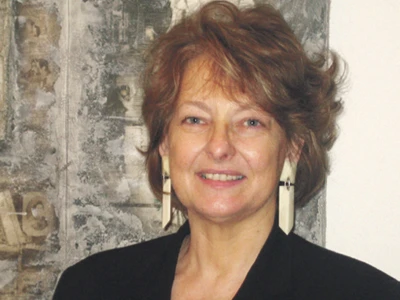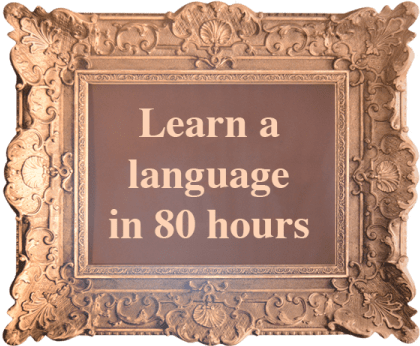The Varadi Method

"It is not because things are difficult
that we do not dare,
it is because we do not dare
that they are difficult. "
Seneca’s words are crucial. Indeed, our learning ability is much better than we think it is and if we are in a supportive and stimulating environment, we can learn a foreign language in a few months.
The Varadi method was developed by linguists educated at Sorbonne University and at the University of Geneva as a synthesis of the best of both traditional and experimental techniques.
Highly specialised research in Linguistics, Didactics and Pedagogy has managed to deconstruct many misconceptions about language teaching and has developed an efficient and motivating approach that places the student at the heart of the learning process, allowing him/her to feel confident from the very first lesson.
Through active participation, the student quickly develops his/her oral and written language skills while acquiring spontaneous knowledge of grammar.
One of the advantages of the Varadi method is that memorisation requires a smaller effort, thanks to the creative approach of knowledge organisation. Instead of focusing on the number of words learned by heart, we encourage our students to explore and exploit different ways of linking together new pieces of information.
It is a common belief that adults should be taught languages the same way that children acquire their mother tongue. Certain teaching methods were built on that belief because we think that children acquire their mother tongue effortlessly and spontaneously. However, a child actually needs two whole years to take in the basics of the language, and even then, his/her utterances are rather rudimentary, because he/she still has to conceptualise the world. On the contrary, an adult who already speaks one or more languages only has to learn to express already established concepts in different words.
That is why when we teach adults, we offer a learning environment adapted to their interests and needs. Our interactive pedagogical materials and texts spur their imagination and motivation, which are the best allies to face the challenges that a new language can pose.
“Around the language in 80 hours” is an innovative, stimulating and supportive approach which allows our students to learn a language in a very short time thanks to highly effective teaching techniques, tailored to each student. All elements of written or oral communication are explained as they come up in the lively, spontaneous dialogue between student and teacher; instead of being introduced in a merely theoretical fashion, they are presented in their communicative function.
If you are a beginner, a 15-20-lesson programme will allow you to reach a basic level of independence, and an 80-lesson programme will bring you to an advanced level.
If you already have some knowledge of the language you would like to improve, you will be able to reach your objective in 20 to 60 lessons, depending on your current level.
Your teacher will help you determine the number of lessons that you need to achieve your goal.
The Varadi method was developed by linguists educated at Sorbonne University and at the University of Geneva as a synthesis of the best of both traditional and experimental techniques.
Highly specialised research in Linguistics, Didactics and Pedagogy has managed to deconstruct many misconceptions about language teaching and has developed an efficient and motivating approach that places the student at the heart of the learning process, allowing him/her to feel confident from the very first lesson.
Through active participation, the student quickly develops his/her oral and written language skills while acquiring spontaneous knowledge of grammar.
One of the advantages of the Varadi method is that memorisation requires a smaller effort, thanks to the creative approach of knowledge organisation. Instead of focusing on the number of words learned by heart, we encourage our students to explore and exploit different ways of linking together new pieces of information.
It is a common belief that adults should be taught languages the same way that children acquire their mother tongue. Certain teaching methods were built on that belief because we think that children acquire their mother tongue effortlessly and spontaneously. However, a child actually needs two whole years to take in the basics of the language, and even then, his/her utterances are rather rudimentary, because he/she still has to conceptualise the world. On the contrary, an adult who already speaks one or more languages only has to learn to express already established concepts in different words.
That is why when we teach adults, we offer a learning environment adapted to their interests and needs. Our interactive pedagogical materials and texts spur their imagination and motivation, which are the best allies to face the challenges that a new language can pose.
“Around the language in 80 hours” is an innovative, stimulating and supportive approach which allows our students to learn a language in a very short time thanks to highly effective teaching techniques, tailored to each student. All elements of written or oral communication are explained as they come up in the lively, spontaneous dialogue between student and teacher; instead of being introduced in a merely theoretical fashion, they are presented in their communicative function.
If you are a beginner, a 15-20-lesson programme will allow you to reach a basic level of independence, and an 80-lesson programme will bring you to an advanced level.
If you already have some knowledge of the language you would like to improve, you will be able to reach your objective in 20 to 60 lessons, depending on your current level.
Your teacher will help you determine the number of lessons that you need to achieve your goal.

